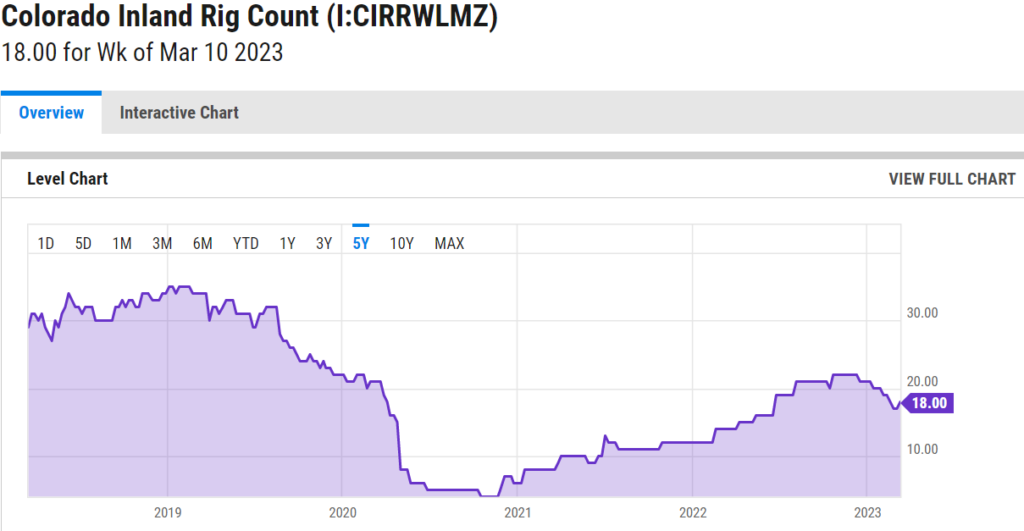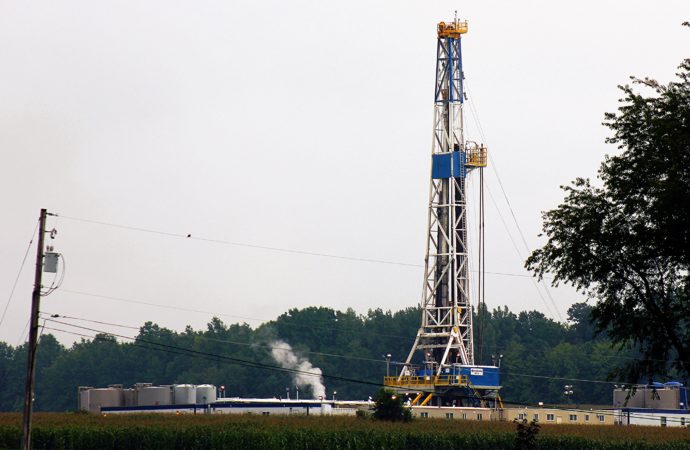Colorado lawmakers and regulators are set to turn their attention back toward a familiar target: the state’s oil and gas industry.
On Thursday, Governor Jared Polis announced that he was directing regulators at the Colorado Oil and Gas Commission (COGCC), the Colorado Department of Public Health and Environment (CDPHE), and the Air Quality Control Commission (AQCC) to begin crafting new regulations to crack down on nitrogen oxides (NOx) and other pollutants in a push to slash oil and gas emissions by at least 30% in the next two years and at least 50% by 2030.
In a letter to those agencies, Polis spelled out the following requested actions:
Directing COGCC and CDPHE to work together to develop a rule (or rules) by the end of 2024 that requires upstream oil and gas operators in the ozone nonattainment area to achieve at least a 30% reduction of NOx during the ozone season in 2025 and at least 50% in 2030 from a 2017 baseline as used in the current SIP. To achieve the NOx targets, the AQCC should engage in rulemaking that will most effectively reduce sector-wide NOx through available control strategies and consider whether the rule is suitable for adoption into the SIP. These emissions reductions should be verifiable and reportable to the public, and COGCC, CDPHE, and AQCC should revisit and consider updating these targets at least every three years.
Directing the COGCC through rulemaking to solidify environmental best management practices addressing ozone, and should revisit and consider updating these practices regularly.
Directing the Colorado Oil and Gas Commission to prioritize the development of an environmental best management practices program at the COGCC. This program should incentivize and reward operators who at the company or project-level are demonstrating industry-leading environmental performance in greenhouse gas and local air pollution mitigation including exceeding goals. The long-term goal of this effort should be to foster a carbon-neutral oil and gas sector in Colorado achieved through on-site and off-site reductions (scope 1 and 2 emissions)
The executive action by the Governor comes fresh on the heels of reports that the Colorado legislature is in the process of crafting legislation to overhaul pollution permitting, with an eye toward ozone formation, specifically aimed at the Colorado Oil and Gas industry.
The impetus for the sudden renewed interest in cracking down on oil and gas comes from the EPA’s recent downgrade of the Northern Front Range nonattainment area’s ozone status and a general perception that the COGCC hasn’t quite been draconian enough in its interpretation of 2019’s SB-181.
Per the Colorado Sun:
Legislators, Front Range elected officials and environmental nonprofits are frustrated at what they say is the regulators’ failure to carry out provisions of a 2019 law requiring drilling permitting to be based on human health impacts rather than just economic benefit to the state.
SB 181, you may recall, was the bill to completely overhaul the industry’s relationship with state regulators. It changed the COGCC’s mission from facilitating oil and gas development to prioritizing environmental interests above all others. It also empowered local communities to impose stricter, but not more lenient, regulations on the industry than the state—up to the point of outright banning production within their jurisdiction.
Despite early resistance to SB-181, the industry eventually learned to go along to get along. It began touting its work under the tightened regulations and even claimed that Colorado was now the “capital of ‘responsibly sourced’ oil and gas.”
Well, it seems no matter how much the industry attempts to appease the state’s lawmakers and its environmental NGOs, their message is the same: “Sorry, we’re just not that into you.”
According to rig count data from Baker Hughes, Colorado has seen a marked decline in oil and gas drilling since 2019 and has had a sluggish recovery post-pandemic.

Colorado Rig Count / YChart
That decline in production has coincided with a massive increase in environmental regulation from the state. According to the Common Sense Institute, Colorado lawmakers have passed 55 bills and spawned at least a dozen new rules aimed at reducing pollution since 2019.
And yet the regulations keep on coming, no matter what it does to the state’s economy. Colorado’s oil and gas industry will always be the go-to whipping boy when state policymakers need to signal their environmental bona fides.
The crusade against ozone pollution is the perfect example. Yes, ground-level ozone pollution is a problem. Yes, oil and gas production plays a role in Colorado’s detectable levels. But its contribution pales in comparison—by the state’s own admission—to that of out-of-state sources over which neither the industry nor state policymakers have any control.
Meanwhile natural and out of state emissions contribute to the problem more than every other source combined. Yet it is those other sources that will bear the brunt of the regulatory burden in the form of more expensive reformulated gasoline and tighter air quality permitting. pic.twitter.com/wbbM7oSQUG
— Jake Fogleman (@Jake_Fogleman) September 16, 2022
Meanwhile, Coloradans have already been reeling from dealing with the twin problems of increased prices at the gas pump and spiking utility bills due to turmoil in the natural gas market. It’s unclear how further hamstringing local oil and gas production does anything to help those problems.
Rather than taking pride in Colorado’s status as the country’s fifth-largest oil producer and seventh-largest gas producer, many in positions of power in the state are ashamed of that fact. As such, they’re perfectly content with seeing the industry wither on the vine, come what may.
So while even the Biden administration courts more oil and gas production, and the Energy Information Administration projects the U.S. to remain a net exporter of petroleum products through at least 2050, the current administration in Colorado has made its position to the industry clear: the state is not open for business.








